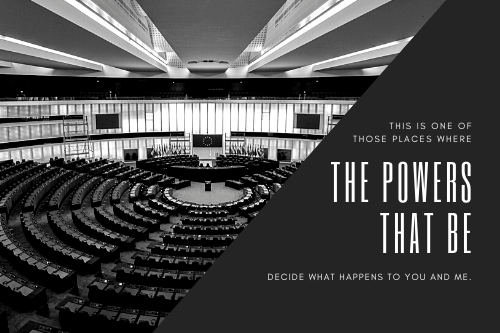
YouTube / iTunes / Spotify / Radio Public / Pocket Casts / Google Podcasts / Breaker / Overcast
Listen to ArtisanEnglish.jp posts & lesson intros here.
Phrase: Powers that be
They are the ones we blame for all of our hardships.
They have the responsibility for the economy, the defence of our nations, our education systems and our taxes.
They are the powers that be.
Please note that all of the things I mentioned are some of the things we complain about every day when someone brings up the phrase, the powers that be but are most likely going to disagree with the decisions made by politicians.
It’s a way to refer to leaders when we don’t know their names or don’t want to use their names.
The powers that be is not always used to refer to politicians, though.
It can refer to any faceless group or organization that is responsible for decision-making on a large scale.
Like or follow ArtisanEnglish.jp on social media.
An organization like Keidanren here in Japan falls under the category of the powers that be especially when we don’t like what they are doing.
In the United States, we saw people protesting against the powers that be in the state of Michigan for extending the coronavirus lockdown even though the shutdown was devastating to the economy.
Young people in North America also depend on the powers that be at universities to approve their application for admittance for the upcoming school year.
It’s always a nerve-racking wait for these high school graduates.
I did not enter university directly after high school, but once I did apply, I remember wondering what the heck the powers that be were doing and why it took so long.
I did end up being accepted to my first university of choice on all three occasions when I applied for university entrance.
We’ll have to leave that story for another day.
Flesch-Kincaid Readability Test
This post is understandable by someone with at least a 9th-grade education (age 15).
On the Flesch-Kincaid reading-ease test, this post scores 59.
The easier a passage is to read, the higher the score on a scale of 0 – 100.

